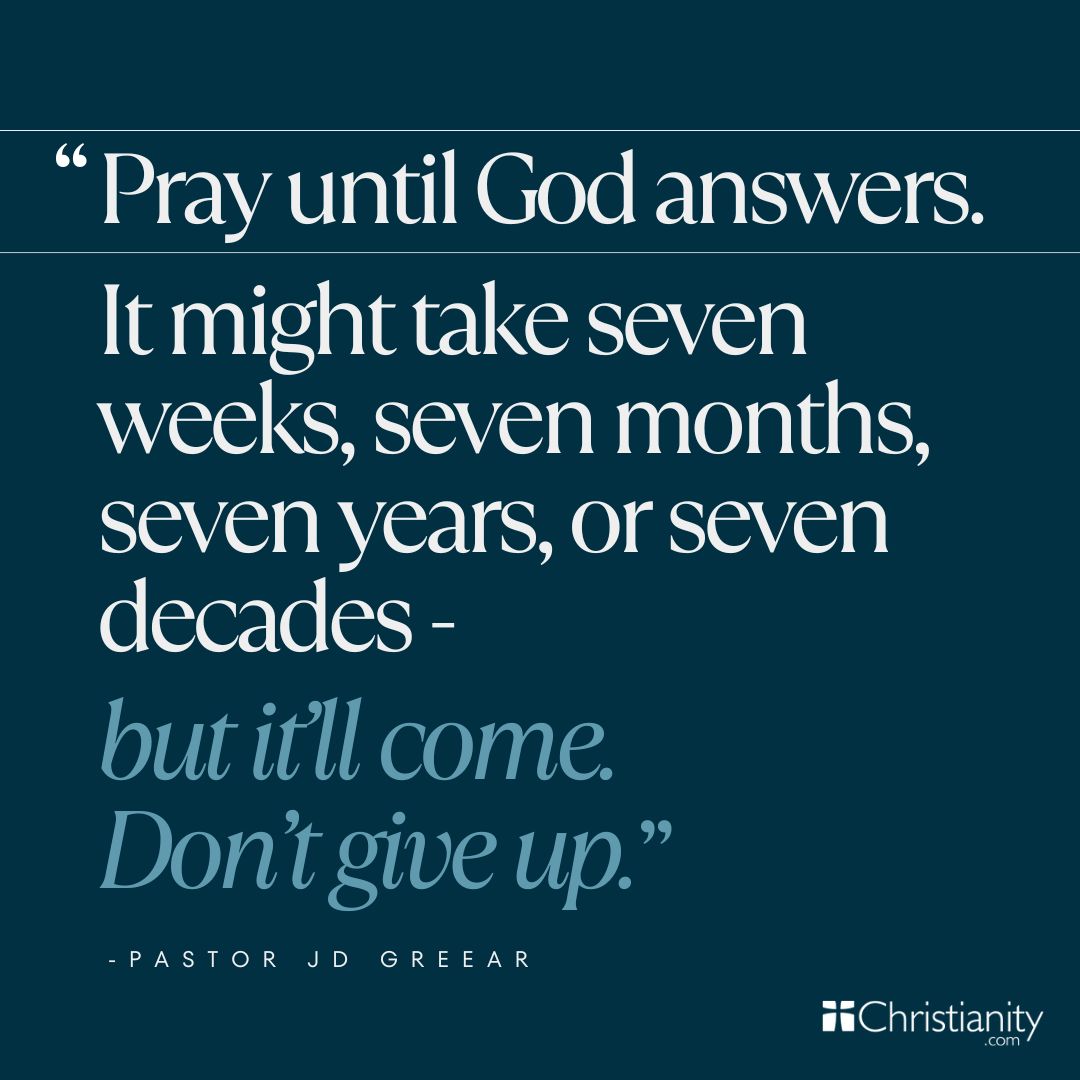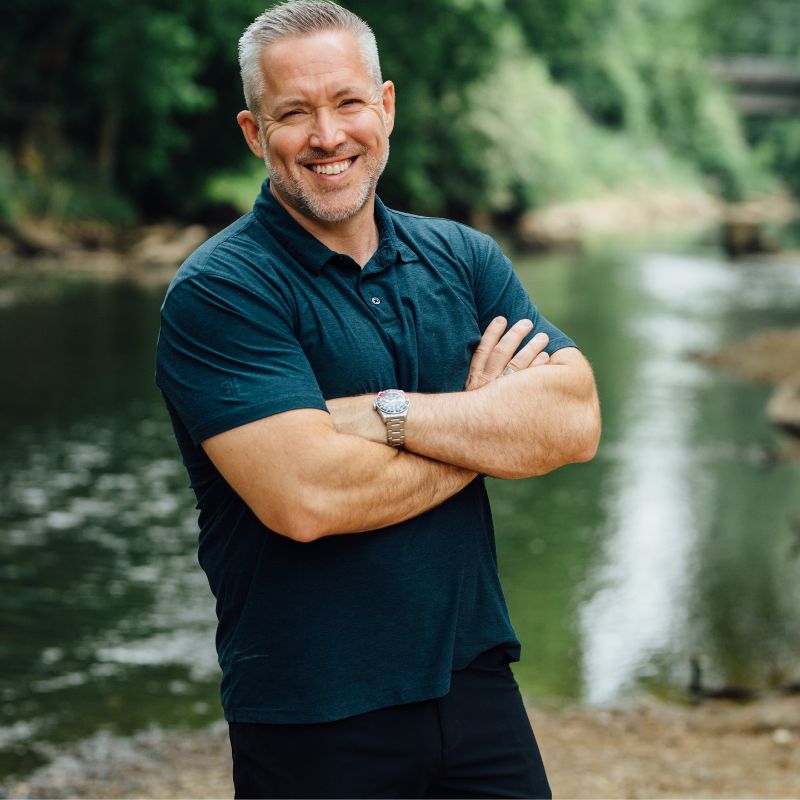
I once heard prayer compared to the electricity running through the walls of a house. At any given point, there’s enough electricity there to power the refrigerator, heater, and TV, but until the plug makes contact with the socket, none of the power is usable. You could be standing right beside the plug, with no access to that power, simply because you’ve never plugged in.
(Which, by the way, might be a terribly accurate description of many people in church. Standing right next to the power, they’ve never made contact with it through prayer!)
If we want our prayer to be difference-making, eternity-altering, and destiny-changing, it has to be Word-based, Spirit-led, unglamorous, slow, persistent, and audacious.
As proof, look to the prophet Elijah.
Four Ways to Pray That Move Heaven
1. Difference-making Prayer Is Word-based.
When Elijah declared that there would be no rain in 1 Kings 17, he wasn’t just picking a random target. He based that prayer on Deuteronomy 11:13–17, where God had said that if Israel worshiped idols, he would shut up the heavens. Elijah literally prayed that into existence.
And when Elijah declared that God would send rain again (in the following chapter), it was rooted in the second part of the promise in Deuteronomy—that if Israel repented, God would allow the rain to fall again.
In both cases, Elijah was simply praying God’s promises back to him. We have even more promises than Elijah did. By one count, there are over 3,000 promises in Scripture, ready for us to unearth and pray back to God.
Prayer isn’t a random wishlist we present to God; it’s the process of discovering what God wants to give us and asking him for it. So, rather than just reading through the Bible, try praying through it.
2. Difference-making Prayer Is Spirit-led.
It’s true that in Elijah’s day, God declared in his Word that he would withhold rain for idolatry and restore it after repentance. But it’s also true that God never gave the specifics of when that would happen. Israel’s idolatry didn’t start overnight, so someone could have prayed for the rain to stop a few days—or a few years—before Elijah did. But Elijah, the prophet, discerned, in his spirit, that God was ready to act on those promises.
The Bible says that God doesn’t do anything without first revealing it to his prophets: “For the Lord God does nothing without first revealing it to his servants the prophets” (Amos 3:7 ESV). I don’t see any reason that truth would be relevant in Elijah’s day but suddenly moot in ours.
One of the more fun elements of this discernment was that after Elijah prayed for rain, he heard it coming even before anyone else did—before, in fact, there was evidence of it at all (1 Kings 18:41). It seems that because of Elijah’s proximity to God, he could discern God’s activity when no one else could. And because of the Holy Spirit, we all have access to this same prophetic gift (Acts 2; 1 Corinthians 14).
Does this mean we’ll all be able to discern, with 100% accuracy, what God wants to do in the world? Not exactly. But the Spirit is still speaking, and I believe God wants us to listen. When we rid ourselves of idols, as Elijah had, and walk closely with God, listening for his voice, the Spirit is able to speak to us about the application of certain promises in Scripture. We exercise this discernment with a lot of caution, of course—the last thing we need is people claiming biblical authority for their own hunches—but it’s undeniable that in all of Scripture, we see a Spirit-led discernment when it comes to praying into existence the promises of God.
So, we pray based on the Word but with a deep sensitivity to the leading of the Spirit.

3. Difference-making Prayer Is Unglamorous, Slow, and Persistent.
When Elijah prayed, the Bible tells us, he took the posture of a woman in labor—his head “between his knees,” as if he was giving birth (1 Kings 18:42). Difference-making prayer is like having a baby: It is often a long, laborious, and painful process. James calls it “effectual, fervent” prayer. Jesus calls it “persistent, impudent” prayer.
Whatever we call it, the kind of prayer that brings new life to the nation, God’s spiritual rain from heaven, is unglamorous, slow, and laborious. Elijah had to pray for rain to come seven times. He prayed and prayed and prayed, yet nothing happened. But he knew in his Spirit what he had heard, so he continued. And finally, it appeared.
Many people are attracted to the big, quick answer to prayer—the fire falling from heaven, which Elijah himself experienced. But new life comes to the city only through persistent, unceasing, belabored prayer—Elijah laboring to see rain.
The question is, Who is willing to do this secret, unglamorous, slow, persistent work of prayer?
4. Difference-making Prayer Is Audacious.
In the final part of Elijah’s story, King Ahab, in his chariot, raced against the rain Elijah had said was coming. Then, Elijah, without a chariot, set off on the same 15-mile journey on foot. And somehow, he outran the king. (It’s one of the most seemingly random miracle stories in the Bible. Go read it for yourself—1 Kings 18:41–46.)
Here’s what I think Elijah’s footrace means: When God is really the one fighting for us, when we perceive that he hears us and answers us, it gives us energy that nothing else can. Energy to, metaphorically at least, outrun horses.
As we age, we’ll all lose the things that make us powerful—our physical strength, our influence, or our eloquence. But Elijah’s footrace reminds us that we’ll never lose our power in prayer. Our power isn’t in our youth or strength; it’s in the secret, unglamorous work of prayer.
Pray until God answers. It might take seven weeks, seven months, seven years, or seven decades—but it’ll come. Don’t give up.
Photo Credit: SWN Design

Pastor J.D. completed his Ph.D. in Theology at Southeastern Baptist Theological Seminary. He serves as a member of the Board of Directors of Chick-fil-A, serves as a Council member for The Gospel Coalition, and recently served as the 62nd president of the Southern Baptist Convention. Pastor J.D. and his wife Veronica are raising four awesome kids.
"Editor's Note: Pastor JD Greear's "Ask the Pastor" column regularly appears at Christianity.com, providing biblical, relatable, and reliable answers to your everyday questions about faith and life. Email him your questions at [email protected]."




